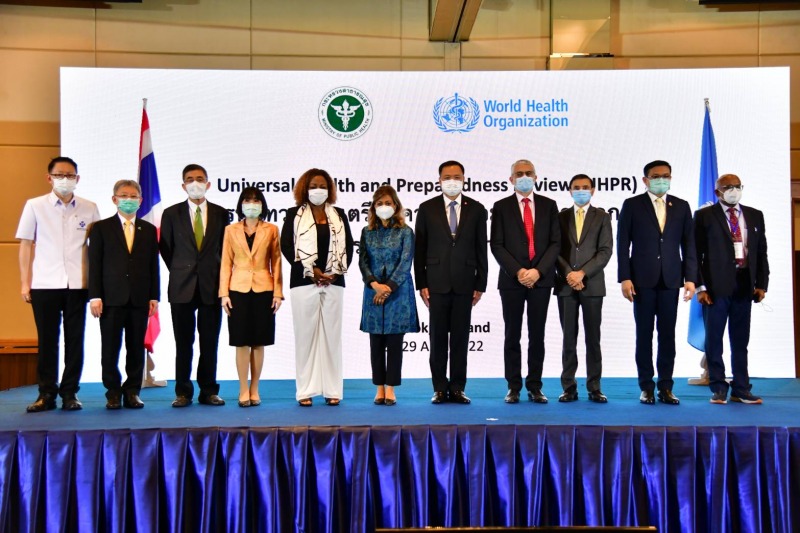
- Home
- DescriptionNews
WHO draws COVID-19 lessons learned from Thailand

WHO draws COVID-19 lessons learned from Thailand
World Health Organization (WHO) chose Thailand as one of the few countries with the best COVID-19 management, leading the country to pilot a health preparedness review that draws on lessons learned during the pandemic.
The selection was revealed during a press conference on the Universal Health and Preparedness Review (UHPR) results, held from April 21-29.

During the press conference, Dr Samira Asma, the Assistant WHO Director-General, said Thailand's experience would benefit WHO country members and sparked new ideas to develop emergency response mechanisms for the next health crisis.
Thailand would be invited to share its experience coping with the pandemic at the World Health Assembly 2022, held from May 22-28 in Geneva, Switzerland.

Minister of Public Health Anutin Charnvirakul, also the chairperson of the National Health Security board, said that multi-sectoral collaboration was the key to Thailand's effective COVID-19 response and management.
The number of new cases didn't increase at an alarming rate after the Songkran holiday (or Thai new year's day,) which Thai people often travel across the country.
The collaboration has involved many players from individuals, many of whom strictly wear masks and avoid traveling to risk areas, and local communities to organizational levels.
Players in the health sector including health village volunteers, hospitals at all levels, and local administrative organizations have worked together in spiderweb networks to implement health measures and distribute coronavirus vaccines to the people.
They have also collaborated to identify risk groups, including the elderly and people living with chronic diseases, and provide them with assistance.
Along with multi-sectoral collaboration, Thailand's effective pandemic management is also a result of practical health measures.
Anutin said that the Thai government's leaders and policymakers had allowed the health measures to be adjustable and changeable based on the situation.
In addition, the Thai health system was established four decades ago with the expansion of health facilities, capacity building for health workers, and the introduction of Universal Health Coverage (UHC), which ensures healthcare access to every Thai.
UHC is a center-piece health mechanism that allowed the Thai government to mobilize healthcare resources to tackle the pandemic while guaranteeing that hospitals would not go bankrupt by providing care to COVID-19 patients.
On the other hand, people can timely access free coronavirus testing and treatment, which help contain the virus.
Dr Amporn Benjaponpitak, director-general of the Department of Mental Health, said that the effective pandemic management was reflected in the recent mental health survey of Thai people.
The survey, conducted between Jan and Feb via the Mental health Check platform, showed that Thai people had better mental health conditions.
Only 2.55% of them were stressful due to the pandemic, reduced from 4.74% in the previous survey. Around 3.12% risked having depression, decreased from 5.74%, and 1.54% risked committing suicide, which declined from 3.14%

